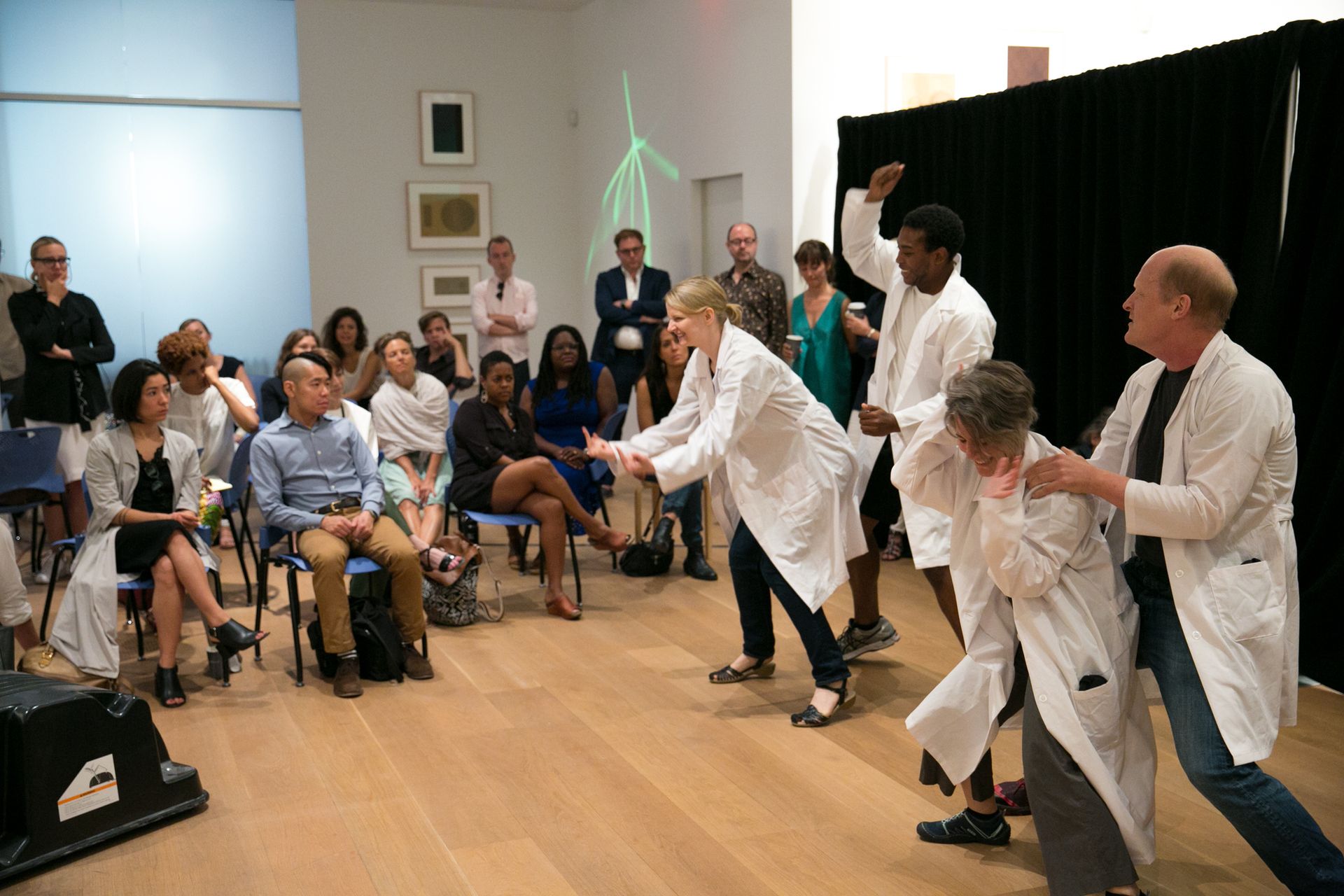Ahead of his show at New York’s Drawing Center in 2018, the artist Pope.L held a workshop this summer with writers, curators and others to preview and discuss his staging of a play written by a former slave.
The Escape; Or, A Leap to Freedom, which will run continuously for the six weeks the show is open, was written in 1858 by William Wells Brown, a contemporary and rival of—as Pope.L described him—“Freddy D” (aka, the abolitionist Frederick Douglass). The play seems Shakespearean in its treatment of slavery: there are secret marriages, declarative emotions, poisoning. Not that you’d have known that from the workshop, which was as unconventional as the staging during the show’s run promises to be.
Four actors wore lab coats, a wink at the experimental nature of all this, and began by sitting with Pope.L at a table. He addressed them as their characters and asked what they lied about in the play. “That I don’t like beating them,” the actress who plays the slave owner offered. “I love beating them.”
Next Pope.L had the actors do a sort of line dance that involved flipping off the audience, strangling each other, and spanking one cast member, who cried “Ow!” progressively louder each time. “Now I think we try some singing,” Pope.L said. “Because after dancing comes singing, right? At least alphabetically.”

What came next was not singing exactly, but a series of blindfolded monologues. “The purest love failed triumphantly amongst the shitting vapours,” moaned one performer, joined by another who repeated “vapours”. After that, the crew practiced entrances and exits—essentially disappearing behind and re-emerging from the black curtains that rim the room—for something like 10 minutes. Pope.L would later say that during the actual show, performers may do this for as long as 3 hours.
And then, finally, a scene of sorts, in which the evil mistress tried to marry one slave to another, whipping the woman, Hannah, with Styrofoam pool noodles when she refused. While this happened, one slave encouraged Cato, her betrothed, to tell the mistress that he didn’t want to marry Hannah. He shook his head. “If I tell missus that I don’t want Hannah, then missus will fuck me, and I ain’t inclined to be no representation for you, for Hannah, for nobody else, nuh-uh,” Cato said.
After the 30-minute preview, one of the first questions was (naturally): why not just do a straight version of this play?
For Pope.L, it was practical. These performers were going to be working the entire time the show was open, which meant he wanted people to be able to wander in and enjoy it in on a molecular level. But he also admitted he wasn’t so interested in a regular staging of the play.
“I’m interested in how the material is organised because there’s certain things he’s put in these scenes that, even when they’re distorted, they ring true. It’s like Raisin in the Sun,” he said, referring to the play about a poor African-American family in the South Side of Chicago trying to improve their situation. “I’ve never seen a Cubist version of Raisin in the Sun. Why not?”

